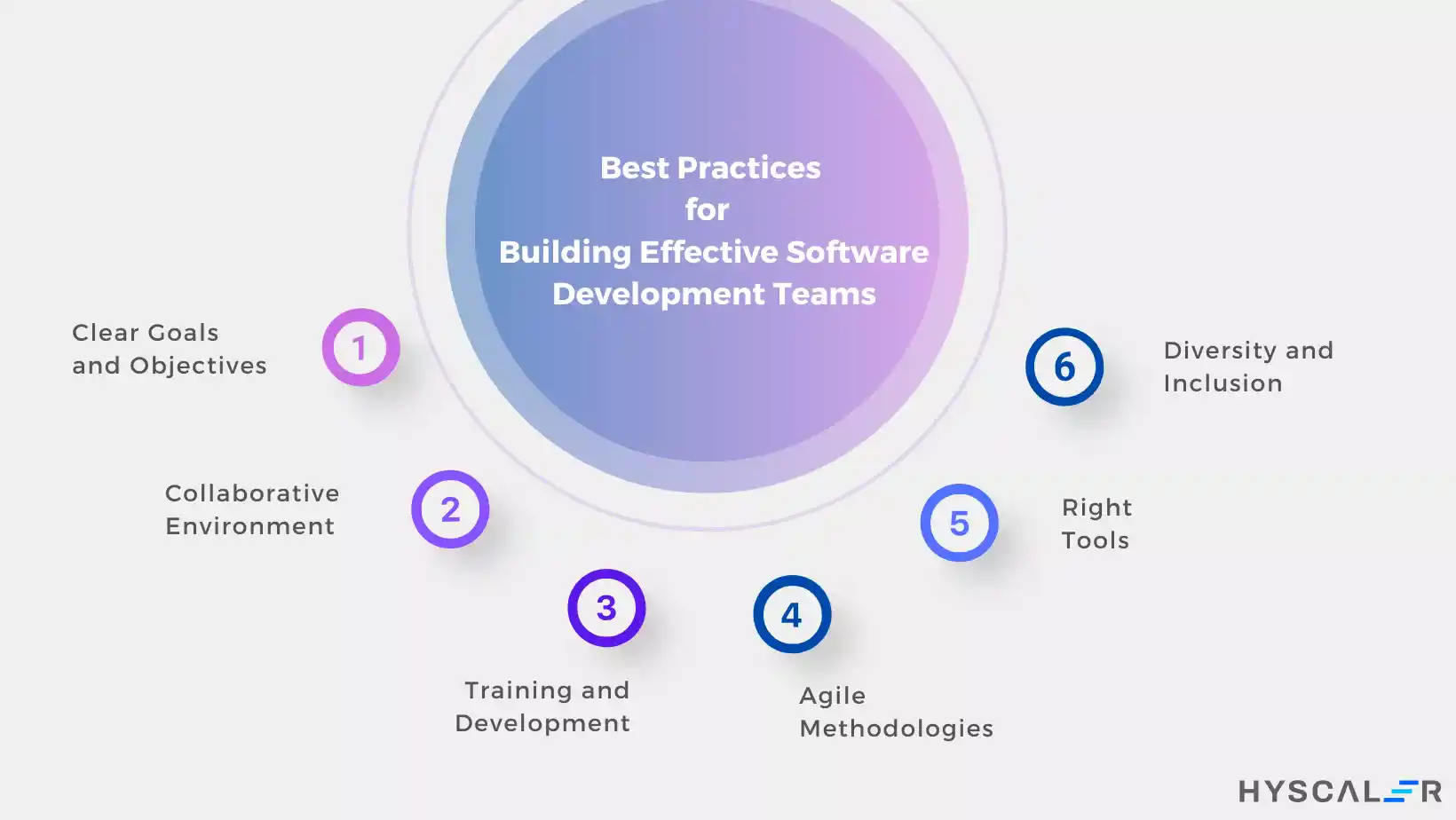Table of Contents
Building a high-performing software engineering team is crucial for the success of any tech-driven company. A well-assembled team can drive innovation, boost productivity, and ensure the delivery of high-quality products. But how do you go about building such a team?
In this detailed guide, we will explore the key steps and best practices for building a software development team that excels.
What Is a Software Development Team?
A software development team is a group of professionals with diverse skills who collaborate to design, develop, test, and maintain software applications. This team typically includes roles such as software developers, quality assurance testers, project managers, UX/UI designers, and system administrators.
Each member brings a unique set of skills and expertise to the table, contributing to the overall success of the software development lifecycle.
Why Do You Need a High-Performing Software Development Team?
Innovation and Creativity
High-performing teams foster an environment where creativity and innovation thrive. They can quickly adapt to new technologies and methodologies, ensuring that the company stays ahead of the competition.
Quality and Efficiency
A well-coordinated team can deliver high-quality software efficiently. They follow best practices in coding, testing, and deployment, reducing the risk of errors and ensuring a smoother development process.
Customer Satisfaction
A high-performing team, often supported by robust hosted phone solutions for seamless internal and external communication, is customer-focused and can deliver products that meet or exceed customer expectations. This leads to higher customer satisfaction and loyalty.
Employee Satisfaction and Retention
Teams that perform well are usually more satisfied with their work environment. This leads to higher employee retention rates, saving the company time and resources in hiring and training new staff.
Best Practices for Building Effective Software Development Teams

1. Define Clear Goals and Objectives
Setting clear, achievable goals is the first step in building a successful software development team. Ensure that every team member understands the project’s objectives and their role in achieving them.
2. Foster a Collaborative Environment
Encourage open communication and collaboration among team members. Use tools and platforms that facilitate teamwork and knowledge sharing.
3. Invest in Training and Development
Provide opportunities for continuous learning and professional development. This keeps the team updated with the latest technologies and methodologies.
4. Implement Agile Methodologies
Agile practices such as Scrum and Kanban can enhance team productivity and flexibility. They promote iterative development, allowing teams to adapt to changes quickly.
5. Use the Right Tools
Equip your team with the best tools for development, project management, and communication. Tools like Jira, GitHub, Slack, and Zoom can streamline workflows and improve efficiency.
6. Encourage Diversity and Inclusion
Diverse teams bring a variety of perspectives and solutions to the table. Promote an inclusive culture where everyone feels valued and respected.
Checklist to Discover an Ideal Software Development Team
- Skills Assessment: Evaluate the technical skills and experience of potential team members.
- Cultural Fit: Ensure that candidates align with the company’s values and culture.
- Team Dynamics: Assess how well candidates work in a team environment.
- Problem-Solving Ability: Look for individuals who can think critically and solve complex problems.
- Communication Skills: Effective communication is crucial for collaboration and project success.
- Adaptability: The ability to adapt to new technologies and changing requirements is essential.
Qualities of Successful Software Development Teams
Establishing Strong Communication
Strong communication is the foundation of any successful team. It ensures that everyone is on the same page, reducing misunderstandings and fostering a collaborative environment. Regular meetings, updates, and feedback sessions can enhance communication within the team.
Strong Team Management
Effective team management involves setting clear expectations, providing guidance, and supporting team members in their roles. Good managers recognize the strengths and weaknesses of their team members and leverage them to achieve the best results.
Geographically Dispersed Teams
In today’s globalized world, teams are often spread across different locations. Managing geographically dispersed teams requires clear communication channels, regular check-ins, and the use of collaboration tools to ensure everyone stays connected and productive.
Clear Roles and Responsibilities
Clearly defined roles and responsibilities prevent overlap and confusion. Each team member should know their specific duties and how they contribute to the overall project. This clarity enhances accountability and efficiency.
Hiring the Right Talent
Hiring the right people is crucial for building a high-performing team. Look for candidates with the necessary technical skills, cultural fit, and the ability to work well in a team. A thorough hiring process that includes technical assessments, interviews, and cultural fit evaluations can help you find the right talent.
Conclusion
Building a high-performing software engineering team requires a strategic approach, clear goals, and a focus on communication and collaboration. By following best practices and focusing on the qualities that make a successful team, you can create a group of professionals who drive innovation, deliver high-quality products, and contribute to the overall success of your organization.





